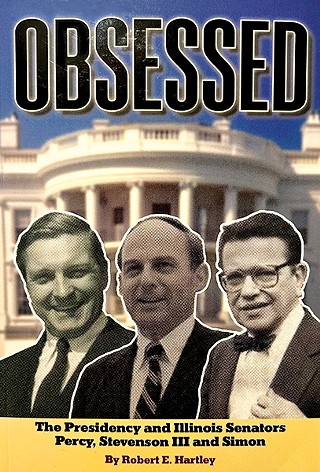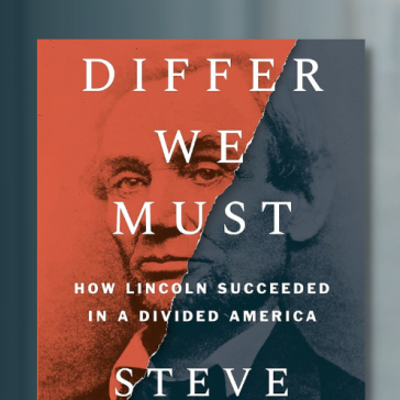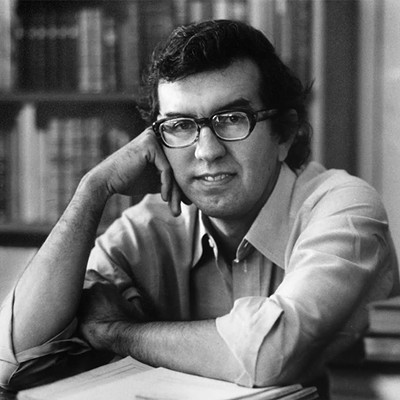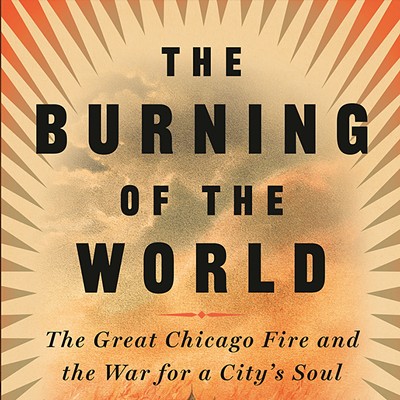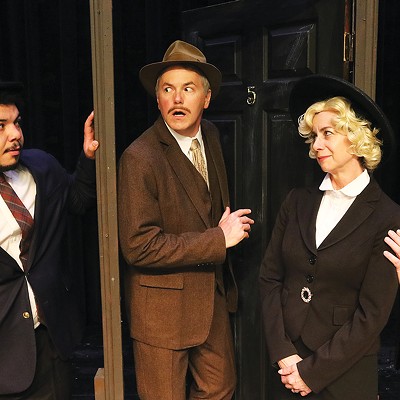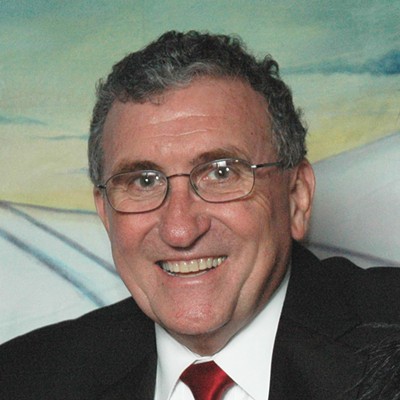Ten years ago, I mentioned the name Chuck Percy in a college classroom only to receive, rather than nods of recognition, perplexed gazes. Another sign of a new generation gap and the ruthlessness of time. More and more, the political giants who dominated the baby boomers' years – Paul Douglas, Everett Dirksen, James Thompson, and Alan Dixon – are unknown to succeeding generations.
Perhaps Robert E. Hartley's latest book, Obsessed, relating the presidential hopes of U.S. senators Percy, Adlai Stevenson III and Paul Simon, will rekindle their dampened fires.
As a newspaper reporter and later a congressional aide, it was my great luck to see not only Hartley's subjects in action but most of the others named above. Who could forget Dixon firing up a crowd at the Illinois State Fair, and Thompson prowling the groups to shake hands, eat corn dogs, and make new friends?
Having written 11 books on Illinois politics, including biographies of Thompson, Percy, Simon and, in another category, Paul Powell, no one does 20th century Illinois political histories better than Hartley, who writes like the journalist he was and the careful and perceptive historian he is. His new book examines the three men – Percy, Adlai III, and Simon – each significant figures on the state and national scenes who shared, albeit briefly save for the latter, the presidential "bug."
Not an apologist for any of his subjects, Hartley criticizes their mistakes and weaknesses. Given the climate of recent politics, it is hard to comprehend that Percy, a moderate-to-liberal Republican, was seen as a potential GOP nominee. Or that the awkward Adlai III was, albeit briefly, a contender in 1976. Simon, the only of the three to get into the arena, flickered for a moment and then fell into the tiger pits skillfully avoided by one of his successors, Barack Obama.
Carefully outlining Percy's rise in Republican inner circles during the Eisenhower years and his stunning defeat of incumbent Senator Paul Douglas in 1966 that made him a national figure, Hartley examines the multitude of reasons that, although a reasonably successful and telegenic senator, he never climbed the predicted ladder to the Oval Office.
For me, Adlai III's presidential hopes were the most surprising. Hartley details the future U.S. senator's ties to Mayor Richard J. Daley. But Adlai III's perhaps inherited penchant for indecisiveness and sending mixed signals proved a fatal flaw to his presidential hopes, which ended before his entering the 1976 Democratic primaries.
Percy too had difficulty with decisions. His best chance came in 1976 but to run he must challenge the unelected President Gerald Ford in the primaries – and if unsuccessful try to retain his senate seat two years later. For Percy, Hartley writes, "it wasn't worth the risk."
In his mind, Adlai III, Hartley writes, saw the "presidency at every turn in the road," an "inevitable" path, aided by his "not-so-secret weapon . . . Richard J. Daley." The best chance was the wide open 1976 Democratic primaries but "he played the waiting game," illogically expecting a "draft." Ending speculation in November 1975, Stevenson announced he was not running (though he made a behind-the-scenes effort for the vice-presidential nomination). When push came to shove and it was time for raising money and jumping into the rugged routine of the primaries, "he did not want the nomination enough to fight for it."
Simon's main mistake, Hartley believes, was his hesitancy to enter the 1988 race. Like Adlai III 12 years earlier, he hesitated until other candidates had snatched valuable campaign staff and funding, waiting until eight months before the Iowa caucuses to jump in. Though the late-entry tactic had worked before in state campaigns, it was a risky move at the national level. Simon enjoyed some early success and consistently raised ideas faster than his opponents, but "he did not have enough time and money to sell them to media, voters and congressional colleagues."
Still, Simon surpassed the others' efforts. Beloved by Illinois voters (not unlike his idol Paul Douglas), Simon continued in office until voluntarily stepping down in 1996, going on to create a public affairs institute at Southern Illinois University-Carbondale.
Hartley is tough on Simon in some passages. Yet overall, he admires Simon's political rise and conduct in office.
This book may correct a regrettable tendency. We often forget that there were – and are – fine people in Illinois politics serving at all levels with integrity and concern for the public interest. Too often some retreat into an imagined world where "giants" strode through our politics, seeming superior by comparison to those who succeeded them.
Hartley's book corrects such tendencies by showing public servants with virtues and faults, ambitions, and failures, who tried to do the best they could in their times and circumstances. And for a moment, each of the three dreamed of occupying the White House, something finally achieved by another U.S. senator from Illinois in the 21st century.
Robert D. Sampson is the editor of the Journal of the Illinois State Historical Society. As a newspaper reporter between 1972 and 1982, he covered Percy, Adlai III, and Simon. His latest book is Ballists, Dead Beats, and Muffins: Inside Early Baseball in Illinois (University of Illinois Press).

